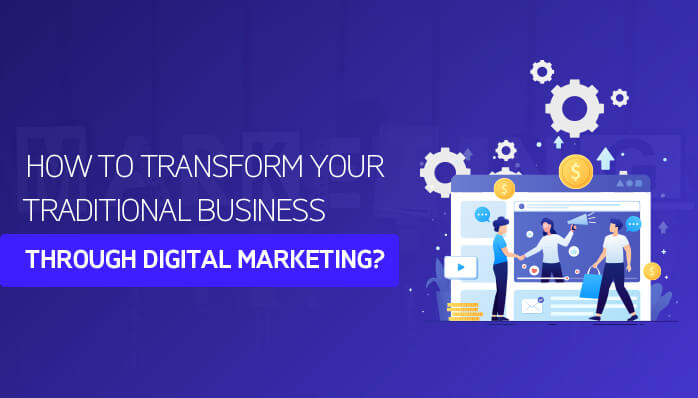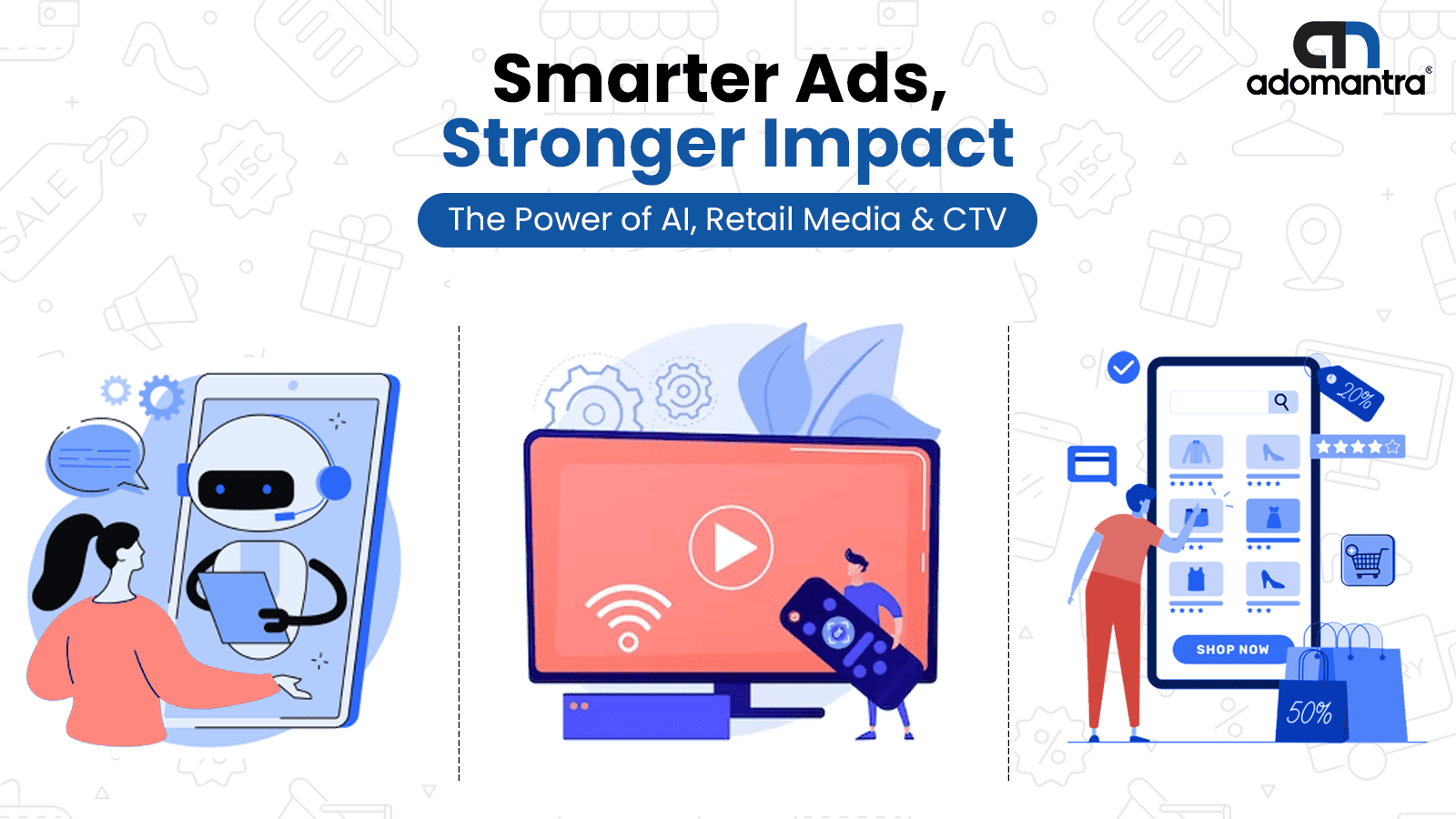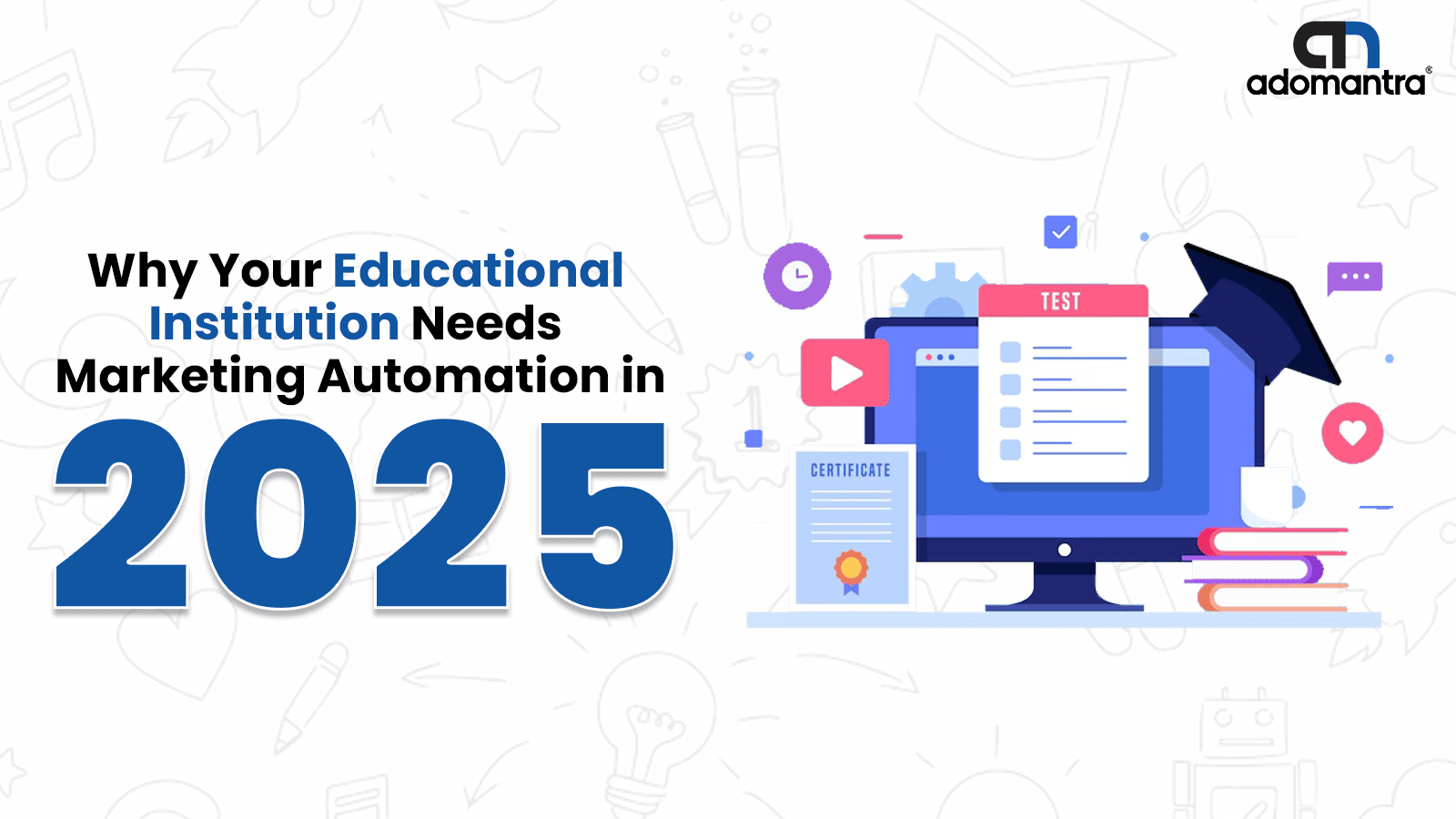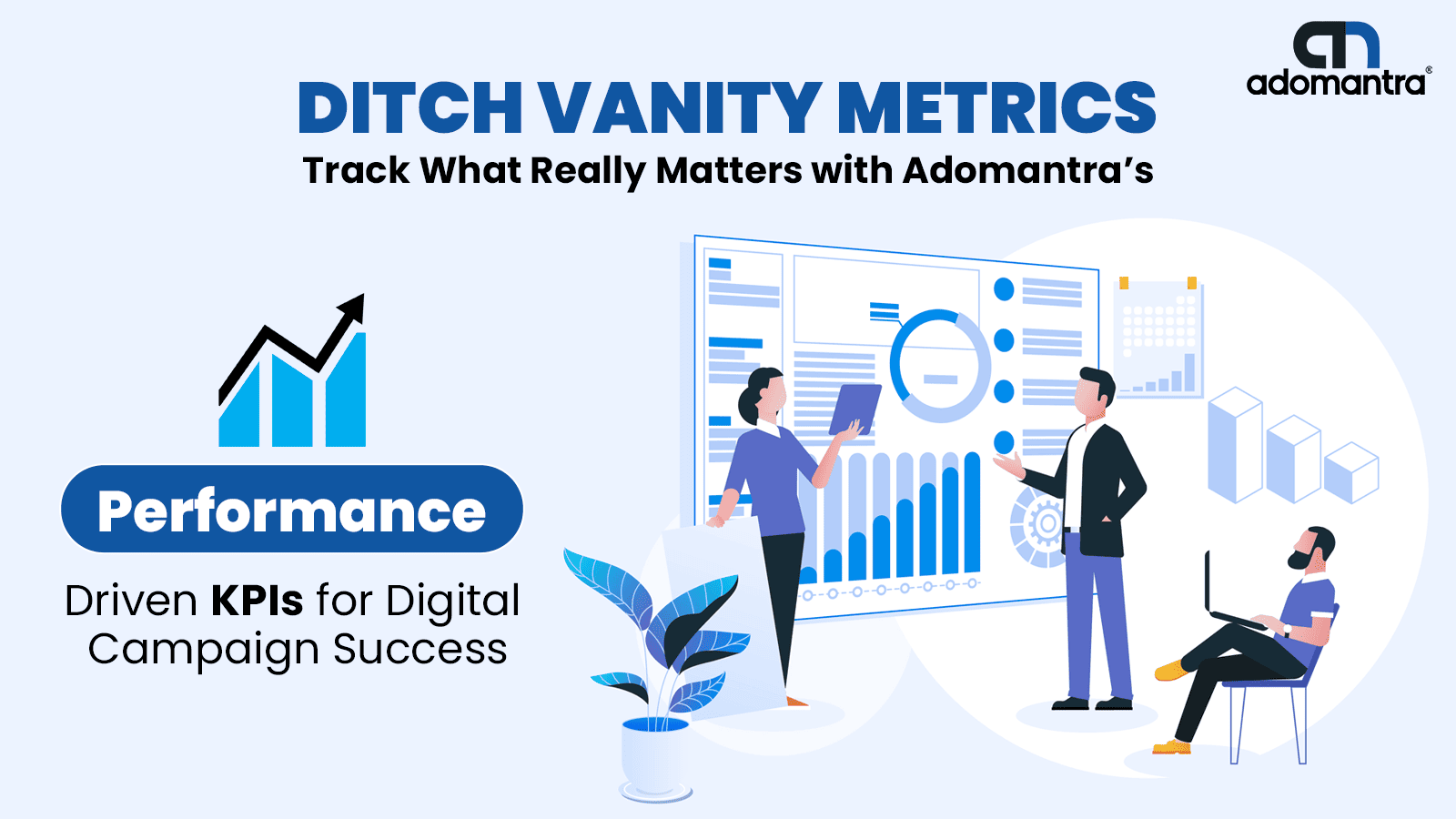
How to Transform Your Traditional Business Through Digital Marketing
How to Transform Your Traditional Business Through Digital Marketing?
Are you a traditional business owner struggling to break free from conventional operating models and enter the lucrative digital era? Transitioning from a traditional business model to a digitally focused enterprise demands strategic foresight, meticulous planning, and seamless execution.
At Adomantra, we understand the challenges involved in transforming a brick-and-mortar establishment into a thriving online business. To help simplify the process, we have curated a 7-step guide to ensure a smooth and rewarding shift for traditional businesses towards the dynamic digital marketplace. Get ready to make a successful digital transformation.
Mastering Digital Transformation with Adomantra: Building Brands Since 2012
Step 1: Analyze and Evaluate Your Current Position - Begin by taking stock of your current business situation. Carefully assess both internal and external factors influencing your venture. Performing a detailed SWOT analysis helps pinpoint areas where technology integration would yield significant improvements, enabling you to optimize processes, streamline operations, and reduce costs.
Step 2: Set Clear Objectives and Define Success Metrics - With a solid grasp of your present standing, outline ambitious yet achievable goals driving your digital transformation. Clearly define key performance indicators (KPIs) measuring success along each stage of your transition journey. Utilize tools like Google Analytics or SMART goal-setting techniques to monitor progress effectively.
Step 3: Engage Expert Assistance and Leverage Industry Knowledge - Partner with industry experts like us who can guide you through digital transitions. Draw upon our expertise for informed decision-making which helps avoid common pitfalls associated with DIY approaches. You can also read our case studies, and book a consultation call with our experts to gain valuable insights.
Step 4: Select Suitable Technologies Aligned with Your Needs - From CRMs, ERPs, eCommerce engines, to content management systems (CMS), we provide end-to-end assistance to identify appropriate digital platforms addressing critical aspects of your operation. We prioritize user-friendly interfaces, scalability, affordability, compatibility, and customization options based on your business needs.
Step 5: Train Staff Members and Promote Internal Capacity Building - Empower your personnel with the skills needed to excel in a modernized workplace environment. We also provide targeted training sessions covering various facets of digital literacy, change management, and collaboration software adoption.
Step 6: Launch Initial Digital Offerings and Iteratively Improve - Implement select components of your digital blueprint incrementally, testing functionality, usability, and ROI before committing further resources. Gather user feedback via surveys, focus groups, or A/B testing methodologies, refining features based on real-world input. Continuously improve offerings through regular updates, feature enhancements, and design tweaks.
Step 7: Embrace Data-Driven Decision Making and Optimize Long-Term Performance - Lastly, harness the power of big data analytics to inform long-term strategic decisions, uncovering patterns, trends, and correlations hidden within vast datasets. This helps in establishing a data-driven culture promoting evidence-based choices over intuitive assumptions.
By following these seven steps, you can navigate the complexities of digital transformation while maximizing its benefits for your organization. Keep in mind that the journey never truly ends - stay agile, curious, and open-minded to seize new possibilities in our ever-evolving digital landscape.
Why Choose Adomantra as Your Partner in Digital Transformation?
When embarking on a digital transformation journey, choosing the right partner is crucial to ensure success. At Adomantra, we pride ourselves on being that ideal companion for businesses aiming to tap into their complete digital potential. Here are a few compelling advantages of partnering with us.
Industry Experience: Having worked alongside numerous clients, we bring extensive domain expertise to the table. We recognize the nuances inherent in diverse industries, allowing us to craft personalized digital strategies catering explicitly to your needs.
End-to-end Solutions: From initial assessment to final implementation, we offer end-to-end services designed to streamline your transformation process. Our holistic approach encompasses everything from auditing your current setup and recommending suitable technological investments to providing ongoing maintenance and support post-launch.
Flexibility: We appreciate that one size does not fit all when it comes to digital transformation. Thus, we adopt flexible engagement models based on varying client preferences.
Collaborative Approach: Rather than imposing preconceived notions, we actively engage with clients in co-creating tailored digital roadmaps. Our transparent working style ensures effective two-way communication channels, facilitating mutual understanding and trust throughout the project lifecycle.
Skilled Professionals: Boasting a highly skilled workforce proficient in contemporary digital trends, Adomantra guarantees top-quality output delivered consistently. Rest assured knowing that competent experts handle every aspect of your transformation, keeping abreast of emerging innovations and applying them strategically.
Result Orientation: We remain steadfastly committed to achieving tangible results for our clients. Whether measured in terms of increased sales, enhanced customer satisfaction, or efficiency, we relentlessly pursue quantifiable improvements driven by well-executed digital strategies.
In short, we are industry leaders in modern-age marketing for traditional businesses. So, why wait? CALL US NOW for quick consultation.
Adomantra - Building Brands Since 2012!
Frequently Asked Questions
Q 1: How to transform a traditional business into a digital business?
A 1: Begin by conducting a thorough audit of your current business operations, followed by educating yourself and your team on digital trends and best practices. Next, develop a clear digital strategy with specific objectives, implement a pilot project, then gradually scale up while investing in security and privacy measures. Lastly, foster a culture of innovation within your organization.
Q 2: How did digital marketing transform traditional marketing?
A 2: Digital marketing revolutionized traditional marketing methods by introducing measurable, targeted campaigns reaching larger audiences at lower costs. It enabled two-way communication between brands and consumers, real-time results tracking, and personalized messaging based on user behavior.
Q 3: How can digital marketing transform your business?
A 3: Digital marketing can elevate brand visibility, generate leads, and boost conversions by tapping into expansive online networks. Through search engine optimization (SEO), pay-per-click (PPC) advertising, social media promotion, content creation, and email marketing, businesses can nurture relationships with prospects and customers alike.
Q 4: What is an example of digital transformation in traditional business?
A 4: A classic example of digital transformation in traditional business includes retail giant Walmart's acquisition of Jet.com, enhancing their e-commerce capabilities and expanding product offerings. Also, Netflix's transition from DVD rentals to streaming services demonstrates a paradigm shift disrupting traditional entertainment industries.







